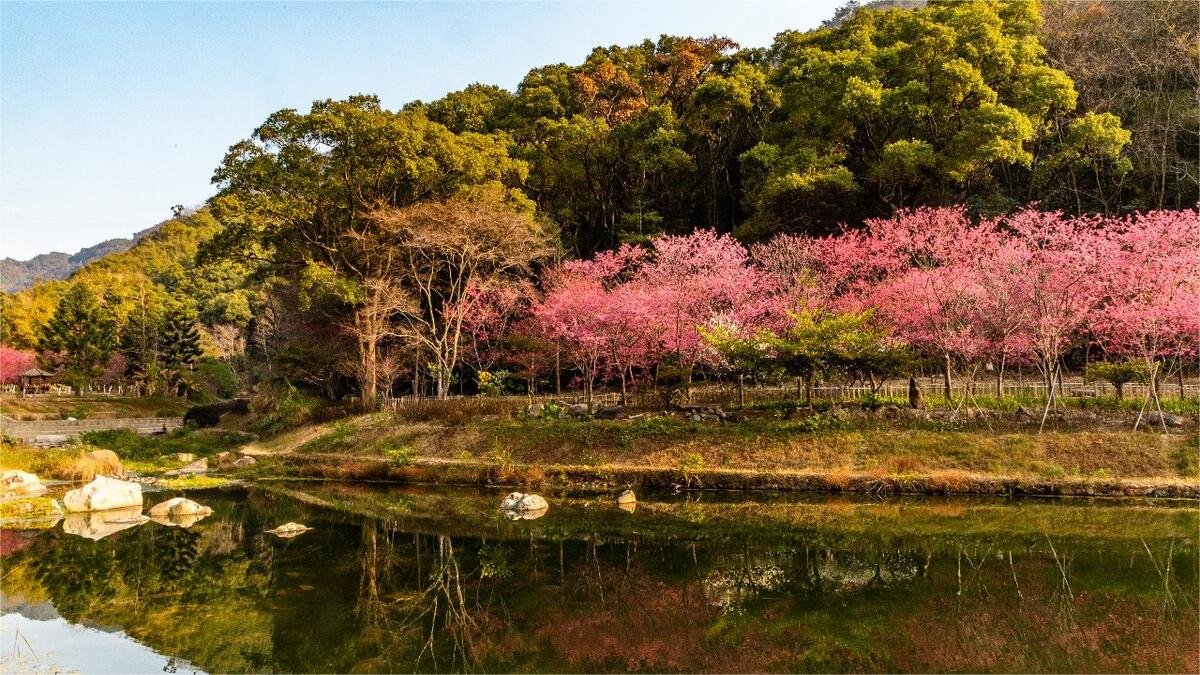Fuzhou National Forest Park (福州国家森林公园), also known as Fuzhou Botanical Garden (福州植物园), is one of China’s top ten forest parks. Established in February 1960, the park spans an area of 859.33 hectares. It comprises five main sections: the forest area, nursery, greenhouse, specialty gardens, and a recreational zone. Surrounded by mountains on three sides and water on one, the park is rectangular in shape. The highest point is Bijia Mountain, with an elevation of 643 meters, while the lowest point at the southern edge, near Bayi Reservoir, is just 47 meters above sea level.
The park is home to several rare and protected plant species. Notable examples include the “living fossil” Metasequoia (dawn redwood), the “Chinese dove tree” Davidia involucrata, and the towering Parashorea chinensis, which can grow up to 70 meters tall, making it impossible to see the top while standing underneath. Other significant plants include the Camellia petelotii, known as the “queen of the tea family,” discovered only in 1960, and the Cyathea spinulosa, an ancient fern species referred to as a relic of ancient forests. Additionally, the park houses the Taiwania cryptomerioides, one of the world’s most famous giant trees, known as the “king of trees.” The thousand-year-old banyan tree in the park is particularly majestic and awe-inspiring.
Table of Contents
- Basic Information
- Location and Transportation
- Map of Fuzhou National Forest Park
- Highlights of Fuzhou National Forest Park
- Vlog about Fuzhou National Forest Park
- Other Attractions in Fuzhou Suburbs
Basic Information
| Estimated Length of Tour | 2 hours |
| Ticket Price | Free |
| Opening Hours | 6.00 – 17.30 |
| Telephone Number | 0086-0591-87921213 |
Location and Transportation
Fuzhou National Forest Park is located in Shangqiao, Xindian Town, Jin’an District, Fuzhou City, Fujian Province. To get there, you can take bus 54, 72, 328, or 527 and get off at Forest Park Stop (森林公园站).
Map of Fuzhou National Forest Park

Highlights of Fuzhou National Forest Park
Bamboo Garden
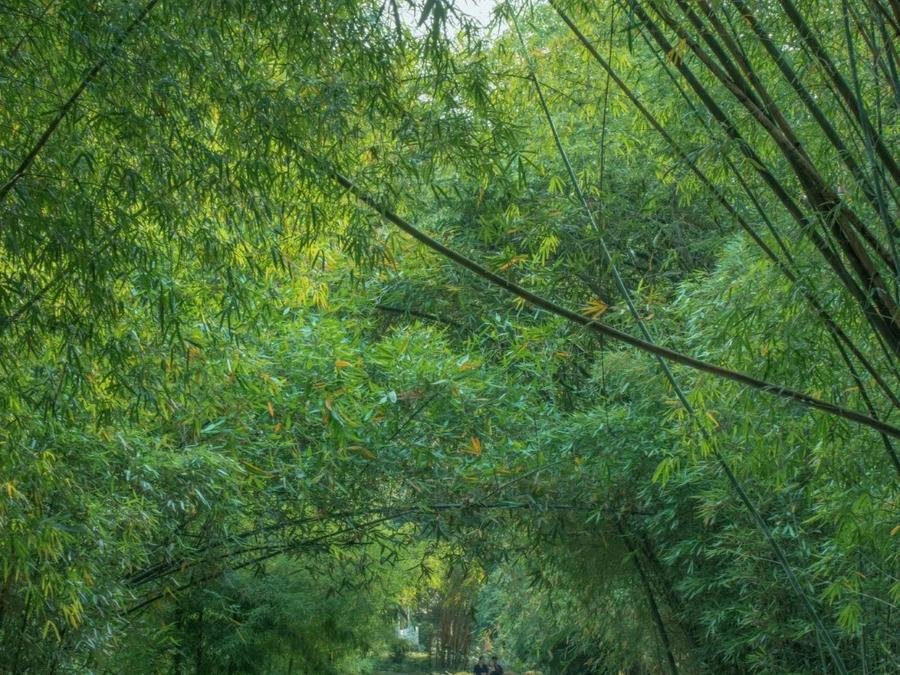
The Bamboo Garden in Fuzhou National Forest Park boasts an impressive collection of 226 bamboo species, surpassing the variety found at the UN World Bamboo Research Center in Anji, Zhejiang by over 50 species. This garden is not only rich in bamboo but also home to some of the world’s most scenic trees, including the Japanese golden pine, Araucaria, cedar, money pine, and coastal redwood. Particularly notable is the coastal redwood, dubbed the “Ambassador of Friendship” between China and the United States. This tree is a second-generation descendant of the one gifted by former U.S. President Richard Nixon to Chinese Premier Zhou Enlai during Nixon’s visit to China.
Additionally, the garden features the world’s top three beverage plants: coffee, cocoa, and tea. The bamboo garden also houses the world’s four major street trees: the plane tree, elm, horse chestnut, and linden, as well as China’s ten traditional famous flowers, with an impressive 74 varieties of camellia alone. Various national flowers from around the world, such as Australia’s bird of paradise and Japan’s cherry blossom, also thrive here, making it a global botanical treasure trove.
Tree Observation Area
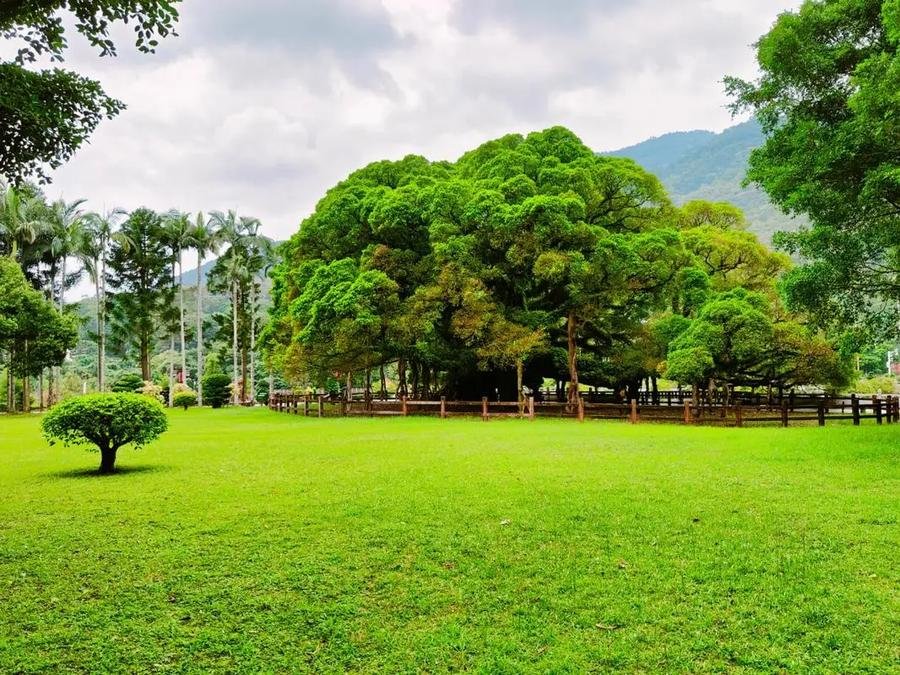
The Tree Observation Area is a testament to the park’s extensive horticultural efforts over the past 40 years, showcasing over 1,700 tree species introduced from both domestic and international sources, along with the protection of more than 1,000 local plant species. This area has been transformed into specialized gardens, including the Bamboo Garden, Rare Plant Garden, Palm Garden, Cycad Garden, Banyan Tree Landscape Area, Fujian Orchid Garden, Celebrity Planting Area, and the Shady Plant Garden, which also serves as a foot massage fitness area.
The Bamboo Garden alone houses over 200 species collected from across China, making it one of the most comprehensive bamboo gardens in East China. The Cycad Garden features 22 species of cycads, with 16 native to China and six from abroad, including national first-class protected plants. These plants are displayed in a simulated ecosystem, blending trees, shrubs, vines, herbs, evergreens, and deciduous species to create a tropical rainforest-like environment. This setup serves as a successful example of artificially mimicking natural ecosystems.
The Palm Garden showcases over 20 species of palm plants, while the Banyan Tree Landscape Area collects and plants more than 30 varieties of banyan trees. This area highlights Fuzhou’s nickname, “The Banyan City,” and is the most concentrated banyan tree collection in Fujian Province, drawing numerous visitors from home and abroad.
Fujian Forest Museum
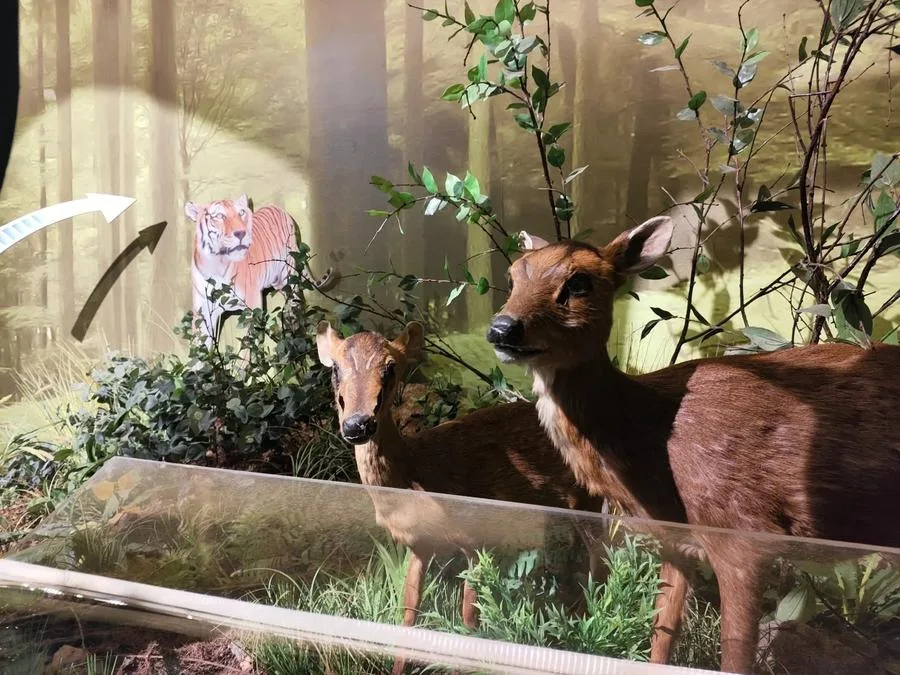
The Fujian Forest Museum, the first specialized museum in China dedicated to forests, opened to the public on January 21, 2001. It covers an area of 3,850 square meters and was built with an investment of over 12 million yuan. The museum is divided into four main sections:
- Animal Specimens: This section features specimens of 50 mammal species, 41 reptile species, over 200 bird species, and more than 500 butterfly species. Visitors can marvel at the diversity of wildlife found in Fujian’s forests.
- Plant Specimens: Displayed here are 29 types of wood specimens, 50 pressed specimens, 20 amber specimens, 40 soaked specimens, and fossilized wood (silicified wood). These exhibits provide insight into the variety of plant life that thrives in the region’s forest ecosystems.
- Forest Ecological Landscapes: This section showcases various forest ecosystems, including the subtropical rainforest landscapes of Nanjing, the mid-subtropical broad-leaved forests of Wuyi Mountain, and the mangrove landscapes of southern Fujian. These displays highlight the unique and diverse ecological environments found within the province.
- Forestry Achievements Hall: Focusing on the theme of “Returning to Nature,” this hall uses advanced technologies such as electric, sound, and audiovisual synchronization to create immersive experiences. It features exhibits that demonstrate the formation and development of forests, as well as the relationship between humans and forests. The hall uses a combination of real objects, specimens, charts, models, and multimedia to present its information, making it both educational and engaging.
Bird Singing Forest
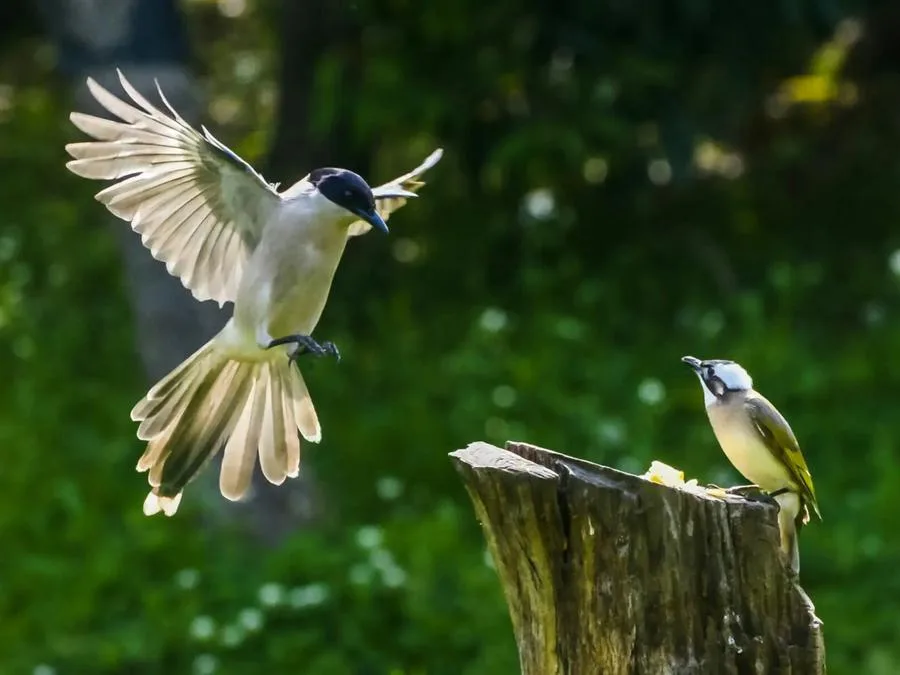
The Bird Singing Forest, located within Fuzhou National Forest Park, spans an area of 25 acres. It is the only bird ecological tourism attraction in Fujian Province. The forest is home to over 5,000 birds from more than 150 species worldwide, including over 10 globally rare species and more than 20 nationally protected species. It boasts the most diverse and numerous bird species in China, making it a premier destination for bird enthusiasts. The forest also features a variety of bird performances, showcasing the intelligence and beauty of these avian creatures.
Rare Plant Garden

The Rare Plant Garden covers an area of 9 acres and is designed to mimic natural ecosystems. It features a harmonious blend of trees, shrubs, herbs, evergreens, and deciduous plants. This simulated rainforest environment creates a lush, dense green space that feels as if it were a natural part of the landscape. The garden is a prime example of successful artificial ecosystem simulation.
Visitors to the Rare Plant Garden will encounter a variety of plants, including several national first-class protected species such as the tree fern, dawn redwood, water pine, and bald cypress. Additionally, the garden contains second-class protected species like the longleaf mahonia and eucommia. The collection also includes tree species from over 30 countries and regions, such as the North American redwood, teak, Araucaria, and Agathis. This diverse assortment of flora makes the Rare Plant Garden a vital refuge for rare and endangered plants in Fujian Province and serves as an important base for forestry education and research.

